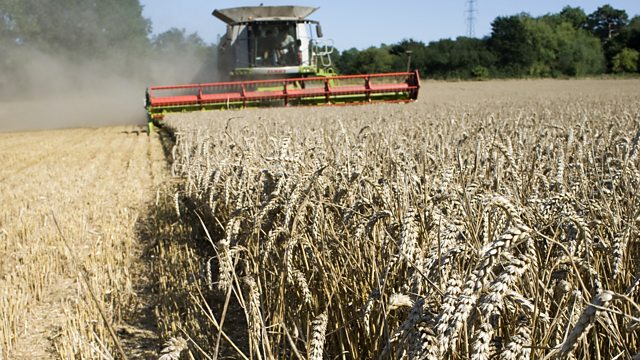Dwarf wheat
Predictions of mass starvation might have been averted by Norman Borlaug’s work tinkering with the genetic design of wheat – but worries about overpopulation continue.
The Population Bomb, published by Stanford biologist Paul Ehrlich in 1968, predicted that populations would grow more quickly than food supplies, causing mass starvation. Ehrlich was wrong: food supplies kept pace. And that’s largely due to the years Norman Borlaug spent growing different strains of wheat in Mexico. The 'green revolution' vastly increased yields of wheat, corn and rice. Yet, as Tim Harford describes, worries about overpopulation continue. The world’s population is still growing, and food yields are now increasing more slowly – partly due to environmental problems the green revolution itself made worse. Will new technologies come to the rescue?
Last on
Image credit
Sources
Our Daily Bread: The Essential Norman Borlaug, Noel Vietmeyer, Bracing Books, 2011
The Population Bomb, Dr Paul R Ehrlich, Ballantine Books, New York, 1968
The Wizard and the Prophet: Two groundbreaking scientists and their conflicting visions of the future of our planet, Charles C. Mann, Picador, 2018
An essay on the principle of population, as it affects the future improvement of society with remarks on the speculations of Mr Godwin, M. Condorcet, and other writers, Thomas Malthus, London, 1798
Broadcasts
- Sat 8 Jun 2019 04:50GMTΒι¶ΉΤΌΕΔ World Service except East and Southern Africa & South Asia
- Sat 8 Jun 2019 13:50GMTΒι¶ΉΤΌΕΔ World Service News Internet
- Sun 9 Jun 2019 14:50GMTΒι¶ΉΤΌΕΔ World Service except Americas and the Caribbean, East Asia & South Asia
- Sun 9 Jun 2019 21:50GMTΒι¶ΉΤΌΕΔ World Service except East and Southern Africa & West and Central Africa
- Sun 9 Jun 2019 22:50GMTΒι¶ΉΤΌΕΔ World Service East and Southern Africa & West and Central Africa only
- Mon 10 Jun 2019 03:50GMTΒι¶ΉΤΌΕΔ World Service South Asia
Podcast
-
![]()
50 Things That Made the Modern Economy
The stories of inventions, ideas and innovations which helped create the economic world


